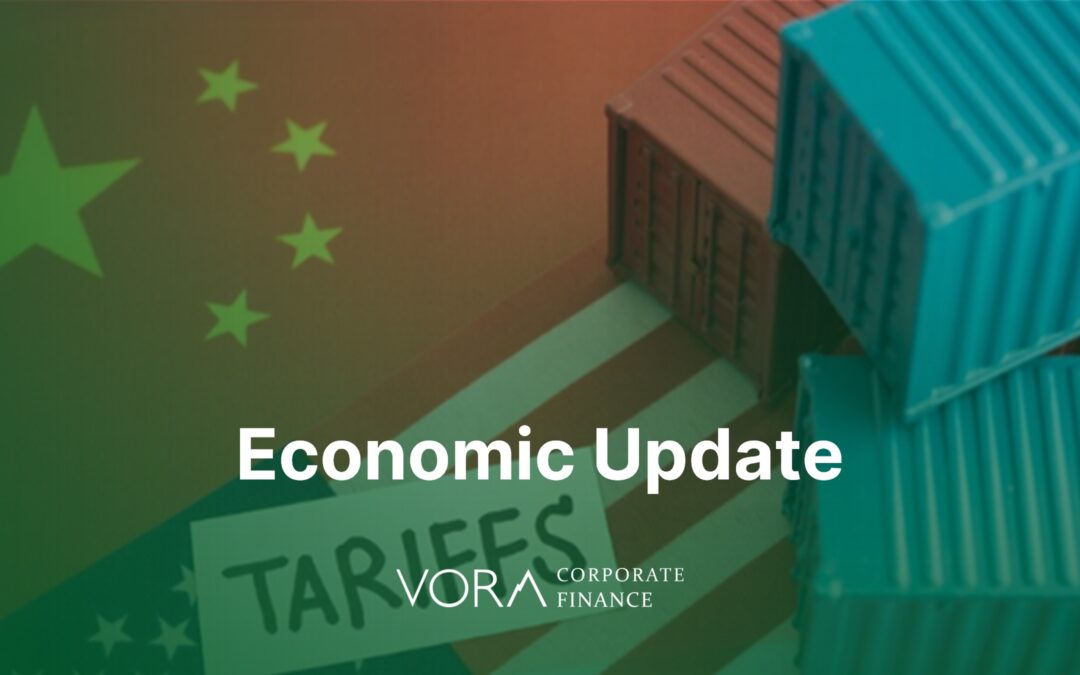The US-China trade war has entered a new and precarious phase. What began as a series of tariffs and retaliatory measures has escalated into a systemic confrontation reshaping global trade dynamics. In early April 2025, President Trump imposed sweeping tariffs of up to 145% on Chinese imports. China swiftly retaliated with tariffs of 125% and a series of non-tariff measures, including blacklisting US companies, restricting exports of rare earth minerals, and launching anti-dumping investigations.
Toll on China
Despite reporting stronger-than-expected GDP growth of 5.4% in Q1 2025, China is showing signs of economic fatigue. Manufacturing indices are slipping into contraction, and key sectors—such as electric vehicles, solar energy, and batteries—are facing declining demand due to restricted access to the US market. Chinese exporters are increasingly rerouting goods through Southeast Asia and moving operations abroad to bypass tariffs and reduce costs.
Blowback for the US
The US is also suffering. Agricultural exports have taken a direct hit, with soybean sales down by 50% in the first week of Chinese retaliation. Energy exports worth $15 billion in 2023 are at risk. A weakened dollar, driven by trade uncertainty, has increased import costs for American consumers, compounding inflationary pressures. Smaller farmers and manufacturers face the threat of closure as global supply chains remain disrupted.
The International Monetary Fund (IMF) has revised its 2025 global growth forecast downward to 2.8%, citing tariff-induced uncertainty. Also, the depreciation of the U.S. dollar against major currencies such as the euro and yen has further complicated matters, reducing consumer purchasing power and increasing inflationary pressures.
Systemic Global Risks
Beyond bilateral damage, the trade war undermines global institutions like the WTO and embracing unilateralism, the US has weakened multilateral norms and emboldened protectionist trends worldwide. The credibility of the US as a stable trade partner has eroded.
Tariff Wars Finally Cool Down
On May 12, 2025, both nations agreed to a 90-day tariff reprieve, marking a temporary de-escalation.
- The U.S. scaled back tariffs from 145% to 30% (including a 20% surcharge tied to opioid enforcement).
- China responded by reducing its own tariffs from 125% to 10%, and agreed to reverse some non-tariff actions, including the blacklisting of U.S. companies and rare earth export restrictions.
Markets reacted positively, with global indices registering gains of 2% to 3.8% following the announcement of a 90-day pause.
Acknowledgements:
RBI Bulletin (www.bulletin.rbi.org.in), SEBI (www.sebi.gov.in), NSE (www.nseindia.com), BSE (www.bseindia.com)
Disclaimer:
This material has been prepared by the personnel in Vora Corporate Finance which is Investment Banking arm of Vora Management Consultancy Private Limited and looks after Mergers & Acquisitions (M&A), Private Equity (PE), Fund Raising, Debt syndication and Valuations and is based out of Ahmedabad, Gujarat, India. Any views or opinions expressed herein are solely that of individual authors and may differ from view of Vora Management Consultancy Private Limited. This material is proprietary to Vora Management Consultancy Private Limited and is for your personal use only. Any distribution, copy, reprints or forward to others is strictly prohibited.
This material captures the information based on information available in the public domain, public announcements and sources believed to be reliable. Analysis contained herein is based on publicly available information and appropriate assumptions. This material is intended merely to highlight market developments and is not intended to be comprehensive and does not constitute strategic, investment, legal or tax advice. In no event Vora Management Consultancy Private Limited be liable for any use by any party or for any decision made or action taken by any party in reliance upon, or for any inaccuracies or errors in, or omissions from, the information contained herein and such information may not be relied upon by you for evaluating any transaction.

